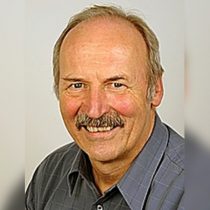Universitätsklinikum Magdeburg
Area of expertise and the Healthcare Provider’s contribution to care for patients within the MetabERN Network
Congenital hyperinsulinism:
- Our center hosted a registry for congenital hyperinsulinism (IRB No 110/04) with patients from different countries.
- Patients had been included after regular counseling with repeated request for advice.
- Molecular genetic testing for 9 genes responsible for different types of congenital hyperinsulinism are established for rapid diagnosis (within one week).
- Localization diagnosis has been performed in 201 patients from all Europe and outside using 18FDopa-PET/CT since 2004. Since 2016 we perform 18FDopa-PET/MRI.
- 32 patients diagnosed with focal form has been operated since 2009 by the same experienced Pediatric surgeon and assisted by experienced team.
- Congenital Hyperinsulinism International, who is the global patient organization developed a registry, which is headed by patient organization and advised by our center and experts of five centers from USA and Europe.
- In our center in a follow up study including established Quality of Life questionnaires and glucose monitoring in 67 patients had been investigated.
Smith Lemli Opitz Syndrome:
For steroid related issues (cortisol and androgen deficiency) in SLO we developed recommendations based on clinical study in 7-/ 8-DHC-analogues of C21- und C19-steroids.
26 patients with Smith Lemli Opitz Syndrome are cared by our institution. On a regular basis we followed up 16 children and adolescents including patients from the simvastatin clinical trial.
Together with the Center for Metabolic diseases University of Heidelberg and the self-support group we developed guidelines.
At annual patient conferences we discussed new diagnostic and therapeutic issues as well as daily routine and social practices in SLO.
Face2gene software is under development assisted by our patient group to develop a better clinical diagnostic tool.
A dry blot spot test has been developed which will be evaluated as an improved unexpensive highly reproducible laboratory test in an upcoming clinical trial.
Quality of life questionnaire specific for nutritional problems has been developed together with the self support group and studied.
Specific treatments and interventions provided by the HCP
Our center delivers all necessary diagnostics, advice and treatment as well as standardized follow-up for different types of congenital hyperinsulinism (CHI), both channelopathies as well as metabolopathies.
- Clinical phase 2 clinical trial in congenital hyperinsulinism are in preparation and has been approved by the IRB.
- All patients diagnosed for focal type congenital hyperinsulinism are within a study protocol for F18F-Dopa-PET/CT.
- Both the intensive care units for neonates as well as older children has all specialized personnel and are equipped with all necessary instruments.
- Our CHI center is organized at 3 sites, where Ped. Endocrinology and metabolism (K. Mohnike) as well as Human genetics (M.Zenker and I. Wieland) is located in Magdeburg.
- We are working closely together with nuclear medicine (private institution, W. Mohnike) and pediatric surgery (University of Greifswald, W. Barthlen).
- Logistics and advice for referring physicians, families and patients are performed in Magdeburg.
- Currently we perform conservative treatment with somatostatin analogues (n=10) as well as diazoxide (n=35) in close cooperation with regional physicians at all parts of Germany.
- Parents are in regular contact with physician and our dietician.
Under regular diagnostic and treatment control we care for 16 patients with SLO from all parts of Germany including metabolic testing for sterol metabolites. For special care we work together with our Ped. Surgeon of the University of Halle (R. Finke). Psychological counseling is offered and given both by our psychologists of the Dept. of Pediatrics but also in collaboration with other centers. The Department offered the assistance of our social worker for applying any kind of paper work in case of insurance or other administery paper work.
Other metabolic diseases, e.g. aminoacid, fatty acid and urea cycle defects are under regular care by our center.
Leipziger Straße 44, 39120 Magdeburg, Germany



